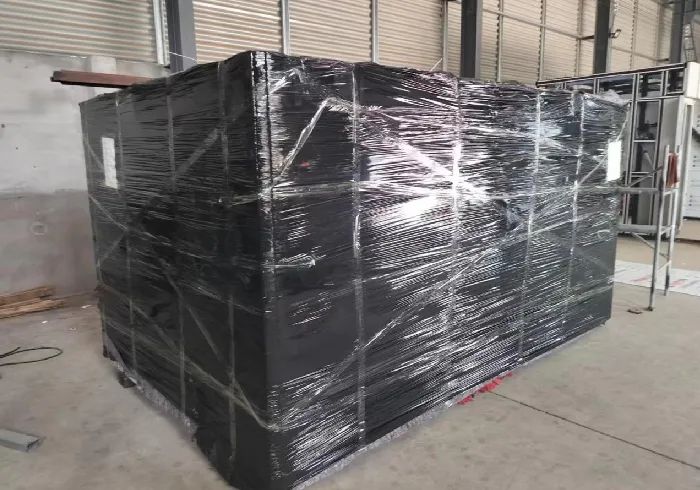
- Afrikaans
- Albanian
- Amharic
- Arabic
- Armenian
- Azerbaijani
- Basque
- Belarusian
- Bengali
- Bosnian
- Bulgarian
- Catalan
- Cebuano
- Corsican
- Croatian
- Czech
- Danish
- Dutch
- English
- Esperanto
- Estonian
- Finnish
- French
- Frisian
- Galician
- Georgian
- German
- Greek
- Gujarati
- Haitian Creole
- hausa
- hawaiian
- Hebrew
- Hindi
- Miao
- Hungarian
- Icelandic
- igbo
- Indonesian
- irish
- Italian
- Japanese
- Javanese
- Kannada
- kazakh
- Khmer
- Rwandese
- Korean
- Kurdish
- Kyrgyz
- Lao
- Latin
- Latvian
- Lithuanian
- Luxembourgish
- Macedonian
- Malgashi
- Malay
- Malayalam
- Maltese
- Maori
- Marathi
- Mongolian
- Myanmar
- Nepali
- Norwegian
- Norwegian
- Occitan
- Pashto
- Persian
- Polish
- Portuguese
- Punjabi
- Romanian
- Russian
- Samoan
- Scottish Gaelic
- Serbian
- Sesotho
- Shona
- Sindhi
- Sinhala
- Slovak
- Slovenian
- Somali
- Spanish
- Sundanese
- Swahili
- Swedish
- Tagalog
- Tajik
- Tamil
- Tatar
- Telugu
- Thai
- Turkish
- Turkmen
- Ukrainian
- Urdu
- Uighur
- Uzbek
- Vietnamese
- Welsh
- Bantu
- Yiddish
- Yoruba
car wash water recycling system
Water Recycling Systems in Car Wash Facilities A Sustainable Approach
As environmental concerns continue to rise globally, car wash facilities are increasingly turning to water recycling systems to minimize water waste and ecological impact. The car wash industry is notorious for its high water consumption, with traditional wash methods using anywhere from 15 to 100 gallons of water per vehicle. To combat this issue, many operators are adopting innovative water recycling technologies that not only reduce water usage but also promote sustainability.
The Need for Water Recycling in Car Washes
Car washes typically utilize large volumes of freshwater for washing vehicles, which can strain local water supplies, particularly in drought-prone areas. Moreover, the process generates significant wastewater containing dirt, oils, and chemicals that require proper treatment before being released into the environment. This makes water recycling systems crucial, as they enable car washes to reclaim, treat, and reuse water, thus conserving precious resources and reducing operational costs over time.
How Water Recycling Systems Work
Water recycling systems in car washes typically follow a multi-step process to ensure that the reused water is clean and safe for subsequent washes. The process begins with the collection of wastewater, which is then subjected to filtration and treatment methods.
1. Collection After washing a car, the used water collects in a wastewater tank. This initial step isolates the dirty water from the clean water used for washing.
2. Filtration The collected water undergoes filtration to remove large debris and particulate matter. This can involve the use of screen filters, sand filters, and more advanced filtration systems that capture finer particles.
3. Clarification Next, the water moves into a clarification phase, where sedimentation occurs. This allows heavier particles and contaminants to settle to the bottom of the tank, leaving behind clearer water that can be reused.
4. Chemical Treatment Sometimes, chemical treatments are applied to neutralize harmful substances and ensure that the reused water meets safety standards. Biocides, flocculants, or coagulants may be introduced to further enhance water quality.
car wash water recycling system

5. Reuse Finally, the treated water is stored in a clean water tank where it can be reused in the car washing process. Depending on the system's capacity and the facility's needs, recycled water can comprise a significant portion of the total water used in each wash cycle.
Benefits of Water Recycling Systems
The adoption of water recycling systems in car washes offers numerous benefits. First and foremost, it drastically reduces freshwater consumption, which helps conserve local water resources. This is particularly important in regions experiencing water scarcity, where saving even a few gallons can make a significant difference.
Additionally, water recycling systems help car washes lower their operational costs. By reusing water, facilities can decrease their water bills and reduce the costs associated with wastewater disposal. This translates into improved profitability and economic sustainability.
Moreover, employing these systems enhances a car wash facility's environmental footprint. Many consumers today are environmentally conscious and prefer businesses that implement sustainable practices. By showcasing a commitment to water conservation, car washes can attract more customers and build a positive brand image.
Challenges and Future Directions
While the benefits are clear, implementing water recycling systems does come with challenges. The initial investment in technology and infrastructure can be significant, particularly for smaller car wash operators. Additionally, regular maintenance and monitoring are required to ensure the system functions efficiently over time.
Nonetheless, as technology advances and water scarcity issues grow more pressing, the trend towards water recycling in car washes will likely continue to rise. Future innovations may include more sophisticated filtration technologies, automated monitoring systems, and even rainwater harvesting models that complement water recycling.
In conclusion, water recycling systems represent a critical step towards a more sustainable car wash industry. By adopting these systems, car washes can not only reduce their environmental impact but also foster a culture of conservation, setting a standard for businesses across various sectors. As both the industry and technology evolve, the potential for smarter, more efficient water management practices will only grow, leading to a greener future for car washes and the planet alike.
-
Integrating Aqua Tunnel Car Wash in Shopping CentersNewsJun.24,2025
-
Gas Station with an Auto Car Wash MachineNewsJun.24,2025
-
Efficiency in Your Aqua Tunnel Car Wash: Power & Water-SavingNewsJun.24,2025
-
Car Wash Business with Advanced Auto Car Cleaning MachinesNewsJun.24,2025
-
Balancing Setup Costs with Aqua Tunnel Car WashNewsJun.24,2025
-
Aqua Tunnel Car Wash: Eco-Design for the Energy-Savvy EntrepreneurNewsJun.24,2025



